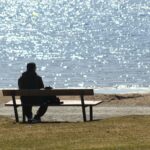How much economic growth is chronic insecurity costing us?
If you give a man a gun, ask him to risk his own life in order to protect you, and then proceed to pay him just KSh 5,000 per month, the outcome is certain: sooner or later, he will turn the gun on you.
Why the government is unable to see this self-evident truth remains one of the mysteries of the day. Money is being splashed in all directions: education, infrastructure, health, even defence. Pay-rises are being heralded every month: MPs, teachers, the armed forces. Yet the people meant to protect us from criminals sit in sullen expectation, still holding those guns. No one says a thing about the police force.
When the Narc government was busy campaigning, we were told some very uplifting things about security. Specifically, that both the number of policemen and their pay would be trebled. Excellent, we voters thought then: bold ideas at last. That should certainly make a difference, we said. Little is heard of that promise these days. The June budget allocated a monumental KSh 13 billion to road building and an impressive KSh 7 billion to education – and an astoundingly niggardly KSh 300 million to the police.
What is going on here? When we study the government’s ‘blueprint’ for economic recovery (Economic Recovery Strategy for Wealth and Employment Creation 2003-2007), published last month, we read that “the contribution of the efficient enforcement of law, the maintenance of public safety, and the guaranteeing of law and order to economic growth, and the improvement of quality of life cannot be over-emphasised.” We can only agree. It cannot be overemphasised.
The blueprint then proposes some specific actions: increasing the overall police-to-population ratio; a public education programme to build trust; retraining of the police force; provision of modern equipment and technology; and improved housing and terms and conditions for the force. All of these excellent initiatives are to implemented under the aegis of the Office of the President; all are expected to be completed between 2003/04 and 2005/06.
That rather elastic timeframe, and the low priority given to security issues in the government’s first budget, suggests that the powers-that-be do not consider this to be a pressing matter. Kenyans can only look on with incredulity. Are we living in the same country as some of our leaders?
Let’s not mince our words. We are living through one of the worst crime waves in living memory. Innocent Kenyans are living in constant, unnecessary fear. Violent crime has become a part of our everyday life, just like traffic and smog. Most of us have either suffered at the hands of robbers, muggers and car-jackers, or have lost many close friends and relatives to this scourge. We can dress this up however we like to foreigners; we can say all the calming things we like to investors. The fact that so many people have had violent crime enter their lives tells the tale. We are all at serious risk, and abnormally so.
Policemen themselves, presidential aides, even MPs have not been spared. Whilst these people grab headlines when they are attacked, the burden of crime on the ordinary Kenyan is a quiet and insidious one. It is in the fear felt in walking home from the bus stop when forced to work overtime, and hearing the footsteps behind. It is in the chilling realisation that a car has been following yours for an unusually long time. It is in looking at every stranger who walks into your shop not as you would a customer, but a potential killer.
When violent crime occurs, it is a horrible, traumatising event that scars most victims psychologically for the rest of their lives. It leaves them unable to venture out at night, or keep their shops open in areas where they are most needed, or even have a good night’s sleep ever again. Those who can will look to other countries to provide them with a peaceful life. When a large proportion of a country’s population is affected in this way, that country will struggle to stage an ‘economic recovery’. We are already a fearful, mistrustful and paranoid people. These are not the characteristics of a populace that is going to excel in anything. Our thinking, our willingness to bear risk, and our readiness to invest time and money are all impaired.
How many talented and industrious people do we lose every year to violent crime? How many survive but migrate to more secure borders? How much money are we all forced to spend on private guards, fences, alarms and weapons? How much time do we all spend worrying instead of thinking? How much economic activity moves away from crime-infested areas? How many investors hear the grisly tales and keep their money in safer havens? In short, how many percentage points of potential economic growth are we losing every year?
The mandarins in government seem blind to this. The problem is of resources, we are told; everything cannot be prioritised at once. Utter claptrap. If we can spend KSh 700 million on increasing MP’s salaries rather than those of policemen, then that is an obscenity. If we can spend KSh 4.5 billion on revitalising the National Bank of Kenya rather than on revitalising the police force, then that is an insult. If we can spend KSh 150 million on marketing our tourism in Europe rather than compensate policemen for risking their lives every night, then that is just plain foolish. If we can spend KSh 100 million refurbishing the Kenyatta International Conference Centre while our police constables sleep on cardboard boxes for beds, then that is an affront. And if we can spend untold amounts on importing luxury vehicles for ministers (because the existing fleet was ‘overused’ in the election campaign by their predecessors), well, that just beggars belief.
The government is busy spending money on measures to counter terrorism, both real and imagined. It is busy expending resources on elaborate commissions of enquiry and task forces. It is busy restructuring the judiciary. It is busy setting up codes of ethics for public servants. These are all excellent things to be busy doing, but not when there are armed thugs at the gate. What is the point of trawling through mountains of documents from the past, and writing vast legal tracts for the future, when gunshots are ringing through the land? Where is the sense in pleasing our foreign masters (sorry, ‘development partners’) when our own people are being hacked and maimed every day by rampaging thugs?
In the meantime, that man with the gun whom I introduced at the beginning of this article, watches and waits. He sees pay-rises being given out to everyone except him. He sees politicians suddenly enjoying newfound wealth. He sees ministers going on ridiculously extravagant foreign trips. He sees TVs and blankets being given out to the very prisoners he helped to put behind bars. He knows that the line of the law is a blurred one in Kenya. He watches and waits in silence, and while he sits there, his eyes fall on the gun in his hand.
What’s causing the current crime wave? You tell me.

Buy Sunny Bindra's book
UP & AHEAD
here »











